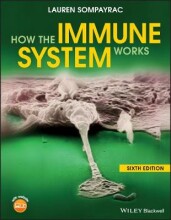Meat authenticity and traceability
9 important questions on Meat authenticity and traceability
What is CWA 17369:2019 ?
- Summerizes: what it is about / how it was structured / what it contains
- Need to understand how product = influenced to determine what makes it authentic & how to use this information to pro
tect product
How does meat authenticity & traceability differ?
- Traceability = to identify the origin of a product trough all stages, mainly for safety & monitoring issues
- Authenticity = to assure general quality attributes (independent of spatial & temporal contexts)
What can we do to combat meat fraud?
- Authorities define what constitutes "meat" for consumers
- To ensure proper labeling & prevention of adulteration or other forms of fraud
However,
- Enforcement of regulations does not always happen
- Inconsistencies in regulations create loopholes = opportunities for fraud
- Regulations not harmonised globally
- Higher grades + faster learning
- Never study anything twice
- 100% sure, 100% understanding
What are the driver(s) for meat fraud?
- Purchase cost-effective meat (low-income consumers)
Accessibility
- Rural areas consumers have limited access & less variety to choose from
- Purchase from unregulated/informal markets
- Cheaper/processed products
- Lower quality meat cuts
- Consumers less concerned about product composition, more in cost saving (increases fraud)
Religion/belief
- Concerned about product composition
- Religious dietary laws have restrictions on consumption of certain animal proteins
- Pork: Muslim/Halal, Jewish/Kashrut; Beef: Hindu
- Magical/medicinal beliefs promote specific animal consumption
- Purchase meat that fits with lifestyle
- "healthier" options; sustainability choices
Why are consumer in rural areas more vulnerable to meat fraud?
- No/limited control of food being sold
- Easy to commit fraud
- Sell products with special attributes
- Sell processed products
- Consumers
- limited access & less choice
- Dont question product composition
- More concerned about price
What are the 2 general meat fraud issues?
- Mixing of meat types/sources = species substitution
- Replace with cheaper undeclared meat types
- Usually in unregulated/less regulated markets
- Ethical issues - beef & pork
- health issues - plant used & people with allergies
- Mislabeling
- Origin-based claims (PDO, PGI, TSG)
- Production system claims
- Premium prices products
Name 3 examples of meat fraud
- Re-grinding old meat with fresh --> improve colour
- Washing expired meat with chlorine --> remove rotting smell
- Adding water (water = cheap, increases weight & sold by price)
- MSM sold fraudulently as minced meat
- Disguise origins of constituents in processed meat products
Difference between targeted and non-targeted
- single or dual targets (chemical compounds) that are primary marker(s) for direct authentication through legal limits
- single or dual targets (chemical elements, isotope ratios, metabolites, etc) that are secondary marker(s) or profiling using secondary markers for indirect authentication through threshold value(s) or database comparison
Non-targeted
- fingerprinting using unspecified targets or data points for indirect authentication through a database or reference comparison
How would you authenticate iberico de bellota?
- DNA/PCR-based methods
- Stable isotopes / elements
- Stable isotopes / elements or PTR-MS
- DNA / PCR-based methods
- Lipids or metabolites or volatiles
The question on the page originate from the summary of the following study material:
- A unique study and practice tool
- Never study anything twice again
- Get the grades you hope for
- 100% sure, 100% understanding





























